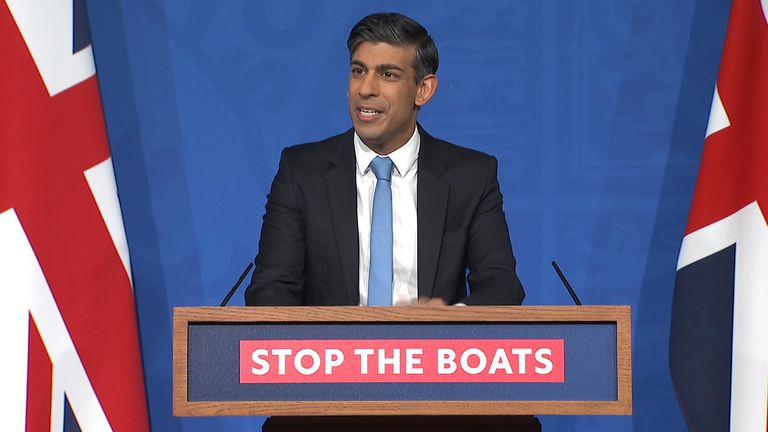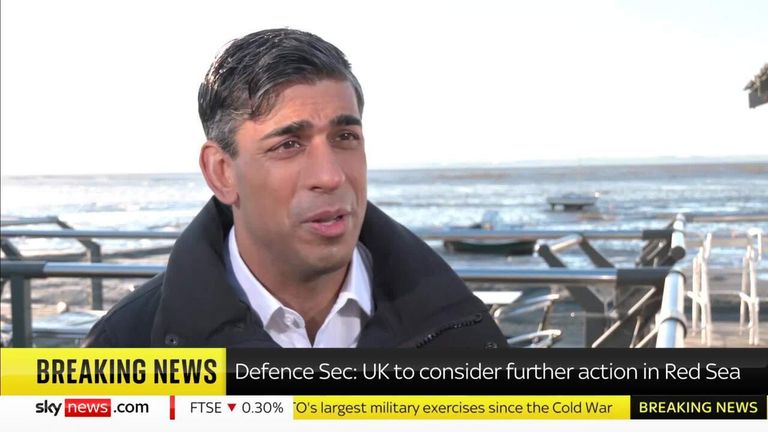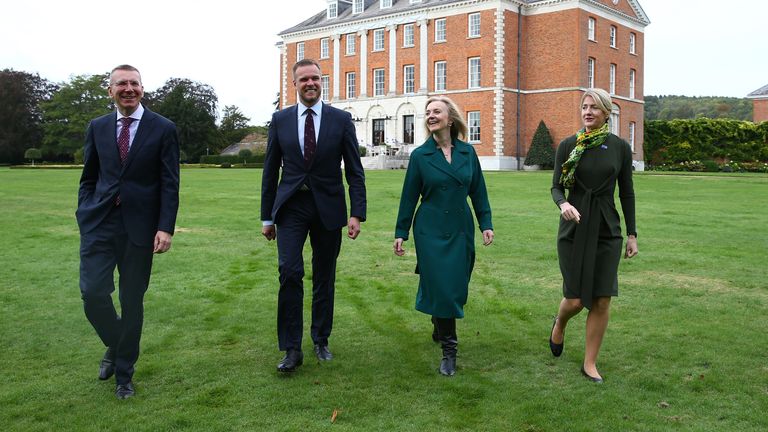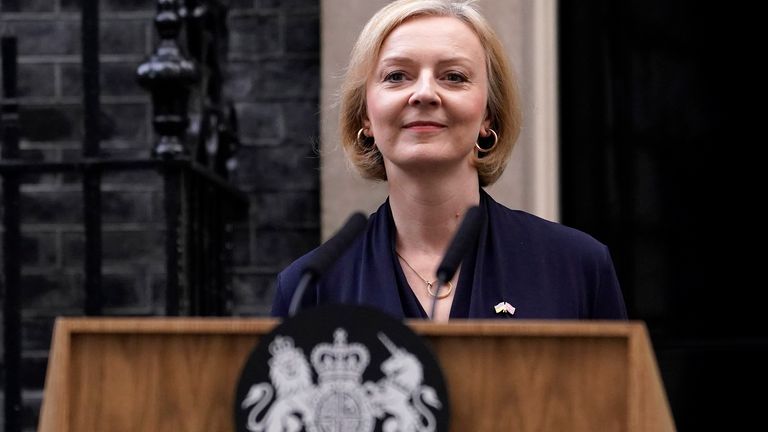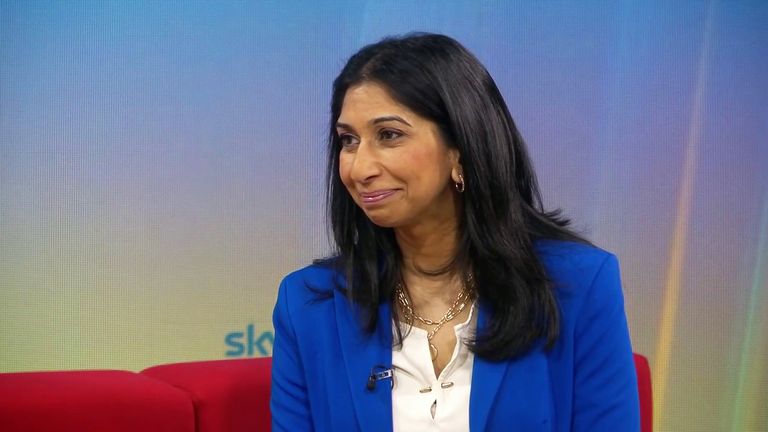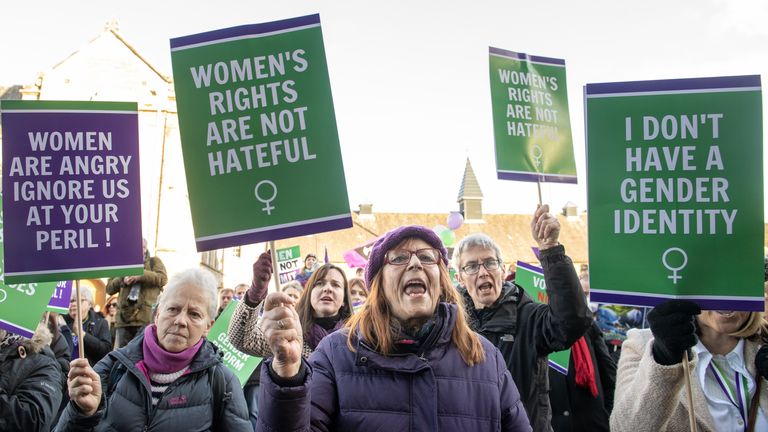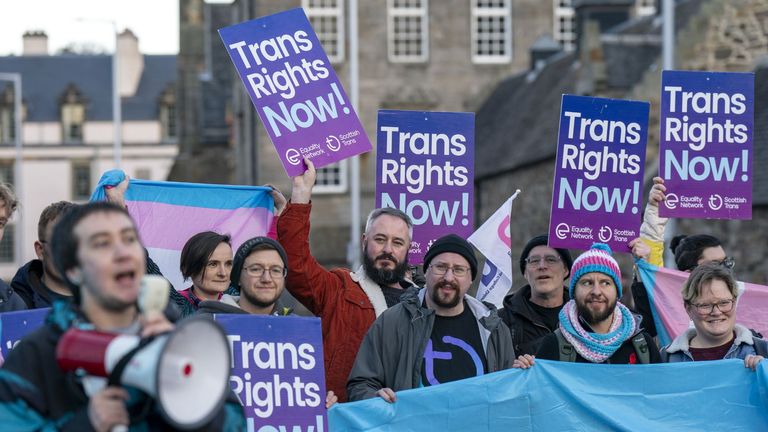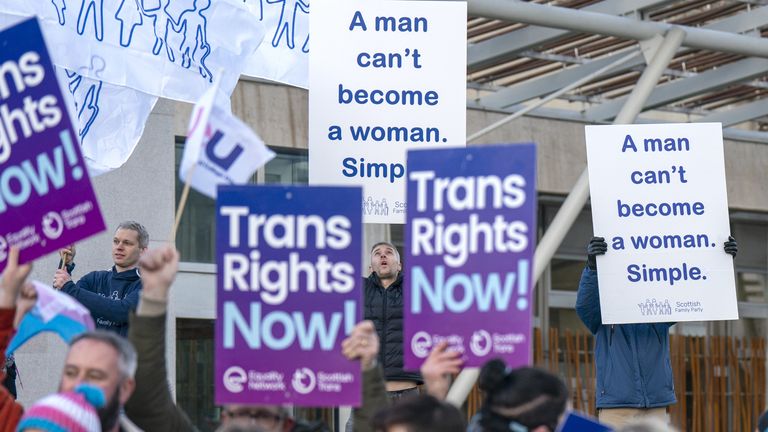Lib Dem Lords to ignore convention and vote against Safety of Rwanda bill | Politics News
Liberal Democrat peers are poised to ignore a convention dating back to Gladstone’s day to stage a protest against the Rwanda bill in the House of Lords.
The Lib Dem group has announced that its 80 peers will vote against the Safety of Rwanda (Asylum and Immigration) Bill at its second reading next Monday.
It’s a highly unusual move and won’t win support from Labour peers, who regard such tactics as a publicity stunt used by smaller parties like the Lib Dems to gain media coverage.
Politics latest:
Red Sea crisis ‘may get more tricky’
And Downing Street is urging peers “not to frustrate the will of the people”, claiming that as the Rwanda bill has the support of the Commons it should be passed by the Lords.
Traditionally, opposition parties don’t vote against government bills at second reading in the Lords, but instead move amendments at committee stage which are then voted on at report stage.
But the Liberal Democrats claim that since the Rwanda policy wasn’t in the Conservative general election manifesto, the convention supported by Labour and the Tories doesn’t apply.
Last year, the Lib Dems moved a motion to “decline” the government’s Illegal Migration Bill at its second reading in the Lords. That was rejected by 179 votes to 76 and a similar result is likely this time.
The deal between the major parties is known as the Salisbury-Addison Convention, which evolved because of big Conservative majorities in the House of Lords during Liberal and Labour governments.
Lord Salisbury was Conservative prime minister in the 1880s and 90s, before and after Liberal giant William Gladstone, and Lord Addison was Labour leader in the Lords after Clement Attlee’s 1945 general election landslide.
But a government defeat in the Lords this week, on a motion to delay ratifying the Rwanda treaty until safeguards have been implemented, has emboldened the Lib Dems to defy the convention again.
In a defeat that spells trouble for Rishi Sunak, peers voted by 214 votes to 171, a hefty majority of 43, in favour of calls for protections to be introduced before deportation flights can take off for Rwanda.
Read more:
Rwanda plan suffers first defeat in House of Lords
Path to plan success harder after symbolic Lords defeat
What is the plan and why is it controversial?
How policy became a leadership issue for Sunak
Revealing the Lib Dems’ intention to vote against the bill, a spokesperson told Sky News: “From the beginning, Liberal Democrats have been clear: We have no faith in the Conservatives’ failing Rwanda scheme.
“It’s totally unworkable and extortionately expensive for the taxpayer. Of course, we all want to stop boat crossings in the channel, but this policy will do nothing of the sort.
“So much time and money has already been wasted, with nothing to show for it. Instead, we want a long-term sustainable solution, which must include an efficient processing system to clear the asylum backlog, and safe and legal routes for refugees.
“We have opposed the bill every step of the way, voting against it at every stage in the Commons. It should be no surprise that our strategy will be the same in the Lords.”
Click to subscribe to the Sky News Daily wherever you get your podcasts
A party source added: “The Rwanda bill is not a manifesto bill. We wouldn’t be voting against it if was in a manifesto. And the convention was a pact between the Tories and Labour. We’re not formally a party to it.
“We voted against the Illegal Migration Bill at second reading and we feel the same way about the Rwanda bill. Since the Lords voted against the treaty this week it makes logical sense to vote against the bill as well.”
But a Labour source told Sky News: “No. We’re not backing it. Why would we stop abiding by our long-term commitment to the Salisbury-Addison convention?
“The whole thing of trying to stop a second reading is obviously a way of a smaller party getting some coverage for something that won’t happen.”
Reacting to the defeat on the Rwanda treaty and looking ahead to the bill’s second reading, a Number 10 Downing Street source told Sky News: “It’s disappointing, but Labour are once again voting against our plans to stop the boats.
“We urge the Lords not to frustrate the will of the people.
“This is the toughest legislation ever introduced in Parliament to tackle illegal migration and makes clear that if you come here illegally you will not be able to stay.
“The bill has the support of the Commons, it is now in the House of Lords. We need to get this through to ensure we get flights off to Rwanda, deter people from making perilous journeys across the Channel and stop the boats.”
